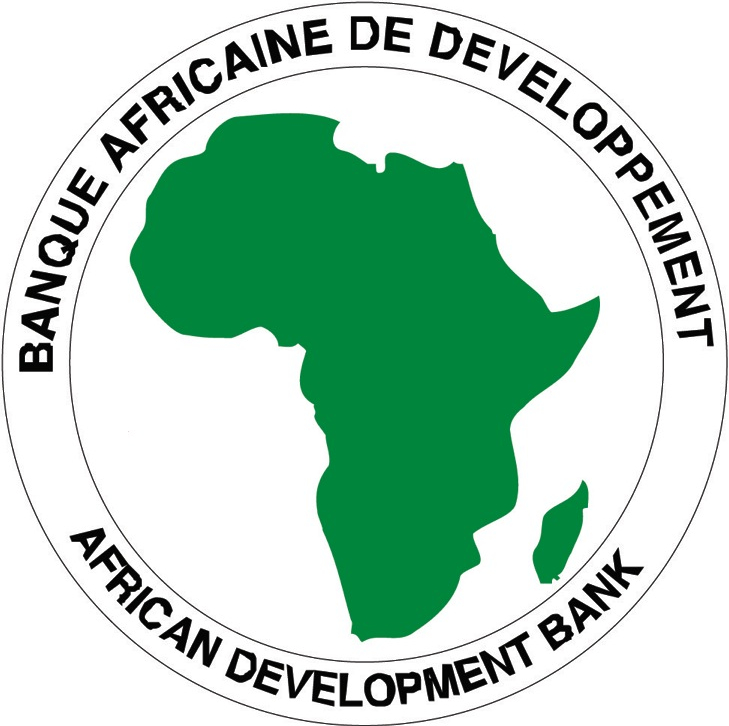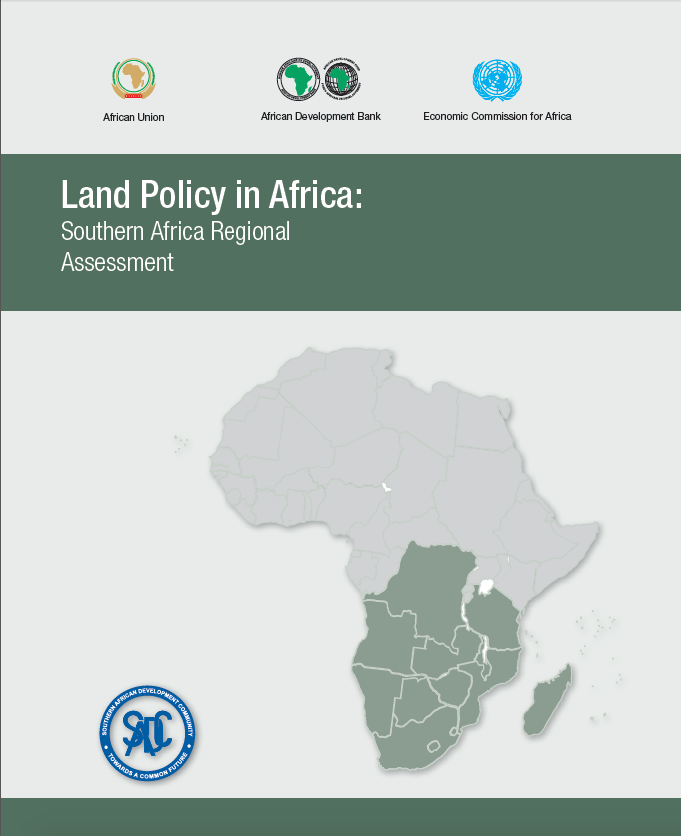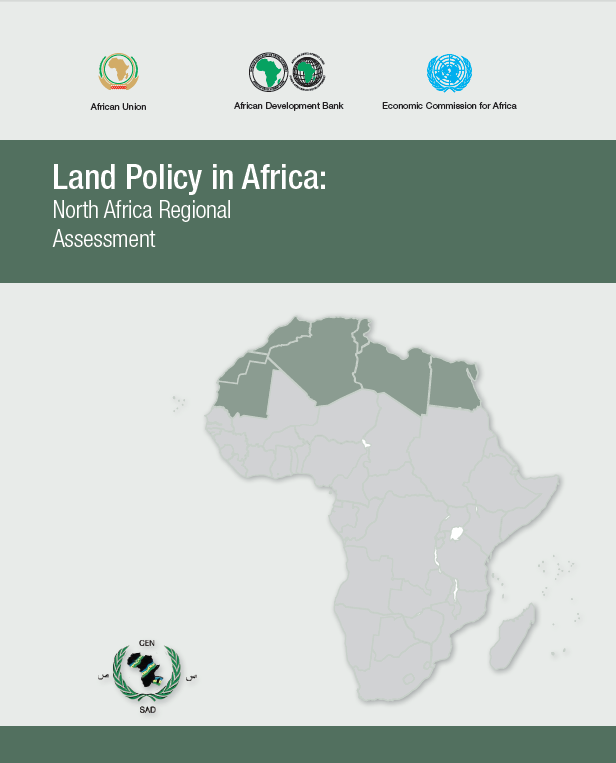Location
The overarching objective of the African Development Bank (AfDB) Group is to spur sustainable economic development and social progress in its regional member countries (RMCs), thus contributing to poverty reduction.
The Bank Group achieves this objective by:
- mobilizing and allocating resources for investment in RMCs; and
- providing policy advice and technical assistance to support development efforts.
In 2000, all multilateral development institutions have agreed on a same set of objectives, called the Millennium Development Goals (MDG). They are:
Millennium Development Goals
- Eradicate extreme poverty and hunger
- Improve maternal health
- Achieve universal primary education
- Combat HIV/AIDS, malaria and other diseases
- Promote gender equality and empower women
- Ensure environmental sustainability
- Reduce child mortality
- Develop a global partnership for development
Members:
Resources
Displaying 41 - 45 of 60Land policy in Africa: North Africa regional assessment
The countries in North Africa share an arid and semi-arid environment with high diversity: mountainous areas run alongside maritime areas and desert. Currently, urban dwellers in North Africa represent more than 50% of the population and are expected to be more than 60% by 2030. However, the urban system in North Africa is suffering urban primacy. The region is well known for its endowment in mineral deposits such as oil and gas. However, it is also known for being one of the poorest regions in the world in water resources.
Land Policy in Africa: Southern Africa Regional Assessment
Southern Africa is one of the most well endowed regions in the continent in terms of mineral and natural resources. However, the region is facing serious environmental challenges such as land degradation, deforestation and water stress in specific areas.
Land Policy in Africa: North Africa Regional Assessment
The countries in North Africa share an arid and semi-arid environment with high diversity: mountainous areas run alongside maritime areas and desert. The population of the region was estimated at 160 million people in 2005 and is expected to be more than 270 million in 2030. Most of the population will live in urban areas. Currently, urban dwellers in North Africa represent more than 50% of the population and are expected to be more than 60% by 2030. However, the urban system in North Africa is suffering urban primacy.
Land Policy in Africa: Eastern Africa Regional Assessment
The African Union Commission (AUC) and African Heads of State and Government are committed to providing a conducive environment for economic growth, poverty reduction and equitable sustainable development. In this context, the quality of governance of land and natural resources is an important factor. Accordingly, better performance of land policies and institutions is required to deliver development goals. Land reforms must equitably address the needs of all land users, including smallholder farmers, the private sector, the urban poor and slum dwellers.





